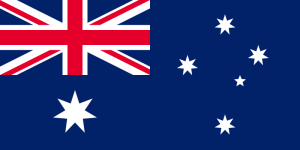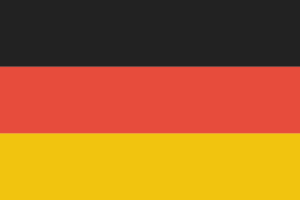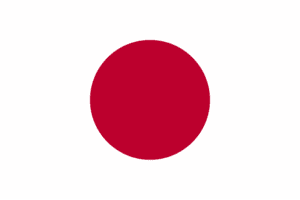for the period ended 31 December 2024
for the period ended 31 December 2024
Statement compliance
This Modern Slavery Statement (the ‘Statement’) is published in accordance with Section 54 of the Modern Slavery Act 2015 (the ‘Act’). It describes the steps Gresham House Limited (‘Gresham House’, ‘we’ or ‘our’) has taken during the 12-month period to 31 December 2024 to understand, reduce and mitigate the risk of modern slavery and human trafficking in our own operations and in our supply chains.
Our business, structure and supply chains
Gresham House is a specialist alternative asset manager. We partner with institutions, charities and endowments, family offices, private individuals and their advisers to deliver long-term financial returns and sustainable outcomes.
We offer funds, direct investments and co-investment opportunities across six alternative investment strategies under two divisions:
Strategic Equity: Public Equity and Private Equity
Real Assets: Forestry, Sustainable Infrastructure, Energy Transition & Real Estate
We actively manage £8.7 billion of assets across UK, Europe and Australasia. Two regulated subsidiaries of Gresham House provide investment management services:
- Gresham House Asset Management Limited
- Gresham House Asset Management Ireland Limited
Our investments are aligned with four long-term global themes:
1. Natural capital – land based, climate-positive assets such as forestry, carbon and biodiversity projects
2. Energy transition – assets that support decarbonisation and net zero ambitions
3. Social impact – assets that benefit people, from digital infrastructure to affordable housing
4. Growth capital – funding for small, growing businesses that drive productivity
Governance and accountability
The Gresham House Limited Board (‘Board’) retains overall responsibility for overseeing modern slavery risk. Day-to-day oversight sits with the divisional heads who review, escalate and report any breaches to the Incidents and Breaches Working Group, the Management Information from which is ultimately reported to the Board. Progress against the targets in this Statement is reviewed by the Director of Sustainable Investment, the Group Management Committee and reported to the Board at least annually.
Policies and standards
Our operations
Gresham House has a Modern Slavery Policy in place that sets out our commitments to preventing slavery and human trafficking. We also maintain Modern Slavery Procedures, which outline the expectations we place on internal practices to support this commitment. Staff are encouraged to report any suspected breaches of these policies or procedures to their line managers or directly to the Compliance Team.
Our supply chain
Our Modern Slavery Policy also addressed modern slavery risks within our supply chain. All new suppliers are required to complete a standardised due diligence questionnaire including specific modern slavery questions, which is reviewed and approved by the Gresham House Operational Resilience Working Group (the “working group”). The working group consists of Group Chief Operating Officer (COO), Strategic Equity COO, Head of Compliance, Director of Sustainable Investment and Director of Finance. The working group is responsible for:
- maintaining service provider lists and categorisation of risks
- screening of high and medium impact providers
- championing the Operational Resilience framework across Gresham House
- reporting areas of concern or material risk
- implementing action for any material risks identified
In addition, on an annual basis, group-level suppliers providing high and medium risk regulatory services (e.g. fund administrators and depositaries), as well as non-regulatory services considered critical to business continuity (e.g. IT providers), are required to complete an updated supplier questionnaire. This onboarding and review process supports the ongoing oversight, monitoring and evaluation of key service providers.
Our investments
A Supply Chain Policy has been developed by Gresham House Energy Storage Fund plc with a focus on forced labour and discrimination. In addition, our funds categorised as Article 8 or 9 under the EU Sustainable Finance Disclosure Regulation (SFDR) apply minimum safeguards which align with the OECD Guidelines for Multinational Enterprises and the UN Guiding Principles on Business and Human Rights.
Risk assessment and due diligence
Our operations and supply chain
In our UK office, the risk of modern slavery for potential employees is assessed as part of the employee onboarding process.
This is achieved by asking potential employees about their ‘Right to Work’ status and by conducting additional pre-employment checks. The process helps to ensure that anyone recruited to work for Gresham House in the UK has the right to do so and that their human rights protected. Therefore, we consider the risk of modern slavery in relation to our direct employees to be low.
Our principal service providers are located in the UK and Ireland. We consider the UK and Ireland to be lower-risk jurisdictions for our IT service providers, office facilities and branded merchandise suppliers.
As part of our third-party assurance process all high and medium risk regulatory service providers and high impact non-regulatory service providers complete an annual questionnaire covering financial resilience, IT, risk, compliance, resourcing and modern slavery controls. There was a 100% response rate for those parties in scope per the 2024 Gresham House Asset Management Limited Operational Resilience Working Group third party oversight process. All service providers were assessed as low risk on modern slavery criteria.
Our investments
Under our Corporate Sustainability Strategy, Gresham House integrates material ESG themes across all investments, operations and culture. Modern slavery risk is addressed through the “Supply Chain Sustainability” theme, prioritised across our Real Assets strategies, where construction, agricultural and technology suppliers pose heightened risk of exposure to modern slavery.
To mitigate this risk, we integrate modern slavery requirements into contractual clauses for our Real Assets service providers. New Engineering, Procurement, and Construction (EPC) and Operation and Maintenance (O&M) contracts in our Energy Transition strategy require suppliers to warrant absence of forced labour and permit on-site audits.
The following table outlines some examples of key risk drivers across our Real Assets strategies.

In 2024, we continued to participate at Solar Energy UK’s Responsible Sourcing Steering Group and commenced additional supply chain mapping across our solar assets. When appointing external managers across our Real Assets, and particularly our Forestry assets, we conduct due diligence to ensure they meet our modern slavery requirements.
During the next reporting year, we will continue to map suppliers and increase our visibility of our supply chain for our Real Assets by 31 December 2025.
Monitoring and measuring effectiveness
Gresham House regularly monitors compliance with its modern slavery policies and procedures and measures its performance by tracking the following key performance indicators (“KPIs”) and setting annual targets.
In addition, all employees are required to complete a modern slavery e-learning module. We will continue to monitor and review our modern slavery training to ensure the training content is as relevant as possible to our business operations and asset classes.

*Of those that did not complete, 100% were leavers in the near-term post-allocation of training.
In 2024, internal audits of our operations and investment activities were completed to identify any breaches or red flags. During this review, no breachers were identified and no further actions were triggered.
Approval
This statement was approved by the Board of Directors of Gresham House Limited on 30 June 2025 and signed on its behalf by:
Kevin Acton
Director, Gresham House Limited
 Gresham House
Specialist asset management
Gresham House
Specialist asset management






